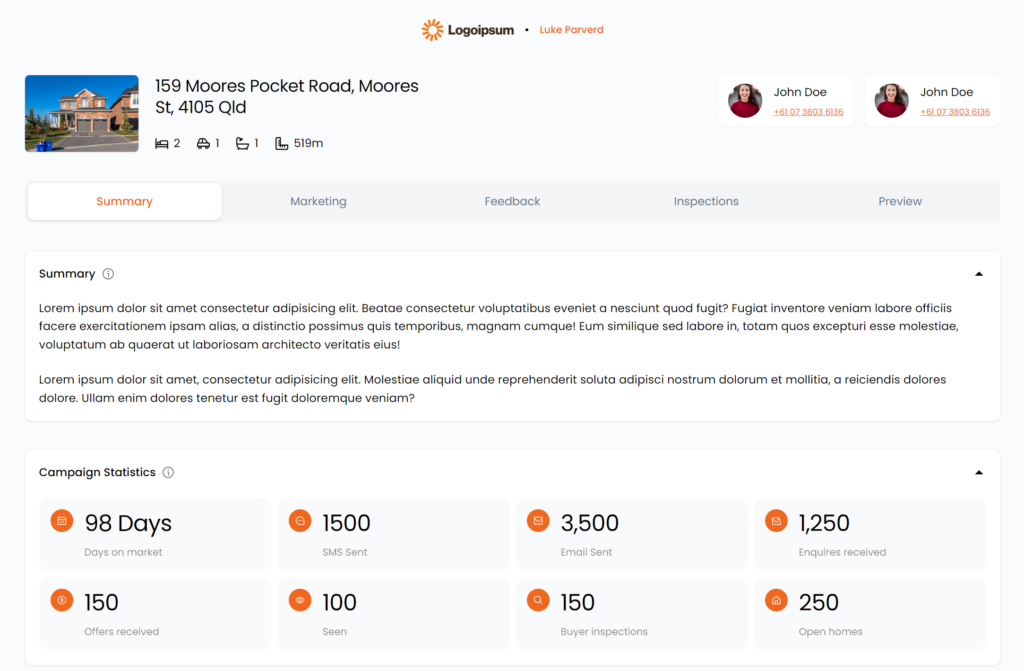29 Oct

In a buyer’s market, effective communication with vendors and potential sellers is crucial to navigate the increased competition and price fluctuations. Learn how to implement strategic ways to keep sellers informed and engaged.
Understanding the Buyer’s Market
A buyer’s market refers to a situation in the real estate where the supply of homes exceeds the demand. This excess supply of properties gives buyers the upper hand in negotiations, often leading to lower prices and more favourable terms.
In these situations agents may find it more challenging to attract suitable buyers and achieve their estimated sale price. Therefore, continual communication with vendors becomes essential to help them understand the market dynamics and then together set realistic expectations.
Utilizing Vendor Reports
Vendor reports are an invaluable tool for conveying buyer interest and price feedback. These reports, which can be generated through your CRM, collate information on buyer enquiries, inspections, offers and contract requests.
Presenting this data in an easy-to-understand format helps sellers see first-hand how the market is responding to their property and provides actionable insights for improving their listing’s appeal.

Provide Up-to-Date Statistics on Listing Volumes
One of the simplest ways to keep vendors informed is by providing them with up-to-date statistics on listing volumes. By sharing data on how many properties are currently on the market in their suburb, sellers can gauge the level of competition they are facing.
An increase in listings generally means more competition among sellers, which can lead to price decreases as sellers vie for buyer attention. Regular updates on listing volumes can help vendors make informed decisions about pricing and marketing strategies. Services like SQM Research can provide the listing volumes over time and agents can demonstrate the trends and impacts of more listings on the market.
Enrol Sellers in Property Alerts
Another effective strategy is to enrol sellers in your property alerts. These alerts can notify them of new properties coming onto the market in their area, allowing them to stay informed about their competition.
By comparing their property to new listings objectively, sellers can gain insights into how their property stacks up against others and make necessary adjustments to their pricing or presentation to remain competitive.

Sharing Recent Sales from All Local Agents
Keeping vendors updated on recent sales from all local agents is another key strategy. By providing details on properties that have recently sold, including the sale prices and any distinguishing features, you can help sellers understand what buyers are willing to pay.
Explaining why certain properties achieved their sale prices, and how those properties compare to the seller’s own, can guide vendors in setting realistic pricing and making necessary improvements to attract buyers. Doing this also positions you as the local expert and demonstrates that you are confident in your ability to continue to advise your vendors on the sale of their property.
To gain a deeper understanding of how to efficiently and effectively communicate with sellers, we offer comprehensive training on the tools you need to inform and educate your clients. These tools include vendor reporting, which provides detailed insights into buyer interest and market feedback, mobile inspection apps that streamline the process of conducting and reporting on property inspections, and property alerts that keep sellers informed about new listings and market trends.
By leveraging these technologies, you can enhance your communication strategy, ensuring that sellers are always up-to-date and engaged. For more information or personalised assistance, contact us now or call our office at 03 7045 1210. Our team is ready to help you use your CRM effectively in a buyer’s market.



